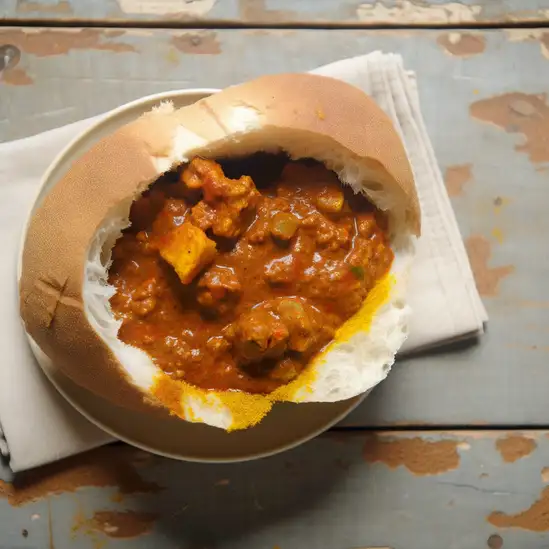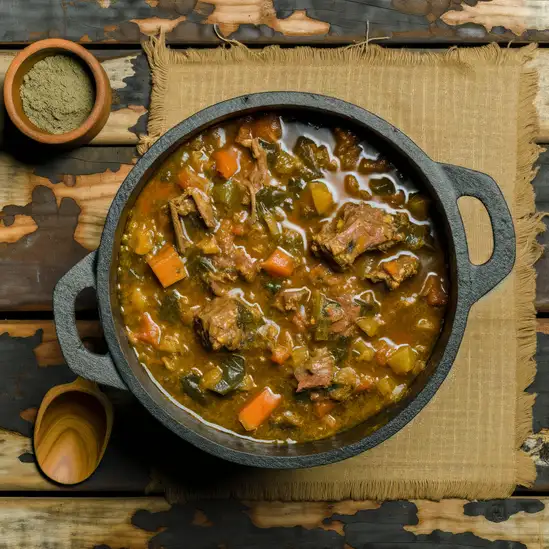



Durban feels like a warm hug from the moment you arrive—its golden beaches stretch endlessly,kissed by the Indian Ocean’s gentle waves and a breeze that carries the scent of salt and sizzling street food. Walking along the beachfront,you’ll hear the rhythmic crash of surf mingling with the lively chatter of locals and the distant beat of drums from a nearby market. The city pulses with a vibrant energy,a unique blend of Zulu heritage and Indian influences that colors everything from the spicy aromas wafting from curry stalls to the intricate beadwork in local crafts. What really makes Durban stand out is its laid-back yet lively spirit. You can spend your mornings wandering through the bustling Victoria Street Market,where the air is thick with the fragrance of fresh spices and ripe tropical fruits,and your afternoons lounging under palm trees,watching surfers dance on the waves. The city’s warmth isn’t just in the weather—it’s in the smiles of the people,the rich storytelling in the local music,and the way every meal feels like a celebration of culture. Durban invites you to slow down and savor life,whether that’s through a plate of bunny chow,a stroll in the lush Botanical Gardens,or a sunset cruise along the harbor. It’s a place where the ocean’s calm meets the city’s vibrant heartbeat,leaving you with a sense of belonging long after you’ve left.
The information on this page is currently being reviewed by Tripkliq and should be used as a guide only
Eng word: Hello
Eng pronunciation: Sah-woo-boh-nah
Local language: Sawubona
Eng word: Goodbye
Eng pronunciation: Hahm-bah kah-shleh
Local language: Hamba kahle
Eng word: Thank you
Eng pronunciation: Ngee-yah-bohn-gah
Local language: Ngiyabonga
Eng word: How much
Eng pronunciation: Koo-bee-zah mah-lee-nee
Local language: Kubiza malini
Eng word: Toilet
Eng pronunciation: Een-dloo yahng-ah-seh-seh
Local language: Indlu yangasese
Eng word: Help me
Eng pronunciation: Ngee-see-zeh
Local language: Ngisize
Eng word: Yes
Eng pronunciation: Yeh-boh
Local language: Yebo
Eng word: No
Eng pronunciation: Chah
Local language: Cha
Eng word: Excuse me
Eng pronunciation: Oo-ksoh-loh
Local language: Uxolo
Durban was established in 1835 after the British took control of the area from the Zulu Kingdom. It was named after Sir Benjamin d'Urban, the then governor of the Cape Colony.
In 1860, Durban saw the launch of the first railway in South Africa, and indeed Africa, connecting the Point area near the harbor to the city, revolutionizing transportation in the region.
In 1860, the first group of indentured laborers from India arrived in Durban to work in the sugar cane plantations, significantly influencing the city's cultural and culinary landscapes.
The Durban Botanic Gardens were established in 1849, making them the oldest surviving botanic gardens in Africa, showcasing a wide variety of both indigenous and exotic plant species.
Durban served as an important military base and naval repair dock during World War II and was a key part of the network of supply routes to the Allied forces.
In the 1970s, the famous Golden Mile was developed to encourage tourism. This stretch of beachfront promenade is known for its golden sandy beaches, shops, and restaurants.
Opened in April 2004, uShaka Marine World is one of the largest aquariums in the world, showcasing a diverse range of marine life and offering various entertainment options.
Constructed for the 2010 FIFA World Cup, the Moses Mabhida Stadium is an architectural masterpiece with a unique arch that offers panoramic views of the city from its SkyCar.
The Durban July Handicap is a prestigious annual horse racing event that has been held since 1897, drawing crowds from all over the country for fashion, entertainment, and sports.
In Durban, the most common Power Adaptor is Type M, Type N.



A hollowed-out loaf of bread filled with spicy curry, Bunny Chow is a must-try dish that originated in the Indian community of Durban.

A slow-cooked stew made in a cast-iron pot, potjiekos can include a variety of meats and vegetables, and is often enjoyed at social gatherings.

Known for its rich flavors and heat, Durban Curry is typically made with meat or vegetables and is characterized by the use of spices like coriander, cumin, and turmeric.

A spicy vegetable relish made with tomatoes, onions, and peppers, chakalaka is often served as a side dish and complements many meals.

A traditional South African dried meat snack, biltong is made from various types of meat, seasoned and air-dried, and is a favorite among locals.

These deep-fried pastries are filled with spiced potatoes, peas, or meat, and are a popular snack or appetizer in Durban.

Similar to Bunny Chow, a Kota is a quarter loaf of bread filled with a variety of ingredients, including chips, polony, and sauces, making it a popular street food.
Imagine a place where the ocean’s salty breeze mingles with the scent of blooming fynbos,and every corner pulses with a vibrant mix of cultures and stories. That’s Cape Town for you—a city that feels alive in the best way. From the moment you step onto the bustling streets,you’re wrapped in a warm,welcoming energy. The iconic Table Mountain looms overhead,its flat top often dusted with clouds,inviting you to explore its trails or simply admire its majesty from a cozy café. The city hums with a rhythm that’s both laid-back and electric,where street musicians play soulful tunes and the chatter of locals spills out from colorful markets.
Walking through neighborhoods like Bo-Kaap,you’ll be greeted by a kaleidoscope of pastel houses and the irresistible aroma of spicy Cape Malay dishes wafting through the air. The flavors here are bold and comforting—think fragrant curries,fresh seafood caught just hours before,and sweet koeksisters that melt in your mouth. At the V&A Waterfront,the lively buzz of boats bobbing in the harbor mixes with the laughter of friends sharing a glass of local wine,while the distant call of seagulls reminds you of the city’s close embrace with the sea.
Cape Town’s charm lies in its contrasts:rugged landscapes meet urban sophistication,history blends with modern creativity,and every sunset paints the sky in hues you’ll want to bottle up and take home. It’s a place that invites you to slow down,breathe deeply,and soak in moments that feel both timeless and thrillingly new.
If you find yourself wandering through Port Louis,you’ll immediately notice its vibrant pulse—a lively mix of old-world charm and bustling modern life that feels both warm and inviting. The city hums with energy,from the colorful stalls of the Central Market where spices,fresh tropical fruits,and fragrant street food scents mingle in the air,to the chatter of locals bargaining and sharing stories. It’s a place where the past and present dance together,with colonial architecture standing shoulder to shoulder with sleek skyscrapers.
Walking along the waterfront,the salty breeze carries the distant calls of fishermen and the gentle clinking of boats bobbing in the harbor. The streets are alive with a blend of cultures—Creole,Indian,Chinese,and French influences swirl through the food,music,and festivals. You can’t help but be drawn into the rhythm of sega music playing softly from a nearby café or the rich aroma of dholl puri being freshly made on a street corner.
Port Louis isn’t just a city; it’s a sensory experience. The vibrant colors of the market,the warmth of the people,and the tantalizing tastes of local dishes like octopus curry or gateau piment make it unforgettable. It’s a place where every corner tells a story,and every moment feels like an invitation to explore deeper. Trust me,once you’ve soaked in its unique spirit,you’ll carry a piece of Port Louis with you long after you leave.
If you ever find yourself wandering through Victoria,the capital of Seychelles,you’ll immediately notice its laid-back charm mixed with a vibrant pulse that feels both intimate and alive. It’s not a sprawling metropolis but a cozy town where the ocean breeze carries the scent of salt and tropical flowers,and the chatter of Creole,English,and French blends into a warm,welcoming hum. Walking through the colorful streets,you’ll catch glimpses of bustling markets where fresh spices,exotic fruits,and fragrant vanilla pods fill the air,inviting you to taste the island’s rich flavors.
Victoria’s character is a beautiful blend of cultures,reflected in its colonial architecture,lively street art,and the friendly smiles of locals who are always ready to share a story or recommend their favorite spot. The city feels like a crossroads of history and nature,with the iconic clock tower standing proudly as a reminder of its past,while just a short stroll away,the lush Botanical Gardens offer a peaceful escape filled with giant tortoises and vibrant tropical plants.
What really makes Victoria special is how it balances the simplicity of island life with a genuine sense of community and culture. Whether you’re sipping a freshly brewed Seychellois tea at a café,listening to the distant rhythm of sega music,or watching fishermen haul in their catch at the harbor,there’s a comforting rhythm here that invites you to slow down,breathe deeply,and soak in the moment. It’s a place that stays with you long after you leave.
Located on the island of Zanzibar,this city is famous for its historic Stone Town,spice tours,and idyllic beaches,making it a top tropical getaway.
ExploreThe capital of Madagascar,offering access to unique wildlife,lush rainforests,and nearby Nosy Be,a stunning island known for its coral reefs and marine life.
ExploreIf you ever find yourself in Male,Maldives,get ready to be swept up by a vibrant little city that pulses with island life and unexpected energy. It’s not your typical tropical getaway where everything feels distant and quiet—instead,Male buzzes with a lively rhythm,where the scent of salty ocean air mingles with the aroma of fresh spices from bustling street markets. Walking through its narrow streets,you’ll hear the chatter of locals,the hum of motorbikes,and the occasional call to prayer echoing from the mosques,all blending into a soundtrack that feels both ancient and alive.
What’s really captivating about Male is how it balances tradition and modernity. You’ll see colorful buildings painted in bright pastels,fishing boats bobbing in the harbor,and sleek cafes serving up rich Maldivian coffee alongside international flavors. The city’s compact size means you can explore on foot,discovering little corners where vendors sell fragrant tropical fruits or where fishermen unload their fresh catch of the day. The warmth of the people here is palpable—they’re proud of their culture and eager to share stories if you stop to chat.
And don’t miss the chance to taste the local cuisine—imagine biting into a spicy mas huni breakfast,where shredded tuna,coconut,and chili dance on your tongue,or savoring grilled seafood fresh from the Indian Ocean. Male isn’t just a gateway to the Maldives’ famous resorts; it’s a lively,sensory-rich place that invites you to slow down,soak in the island spirit,and feel connected to a culture that’s as deep as the surrounding blue waters.
Criminals may offer to 'help' tourists at ATMs, distracting them to steal their card information or cash.
Tourists may book fake accommodations online or be redirected to substandard lodgings after paying for higher-quality options.
Scammers may rent out beach chairs or umbrellas at inflated prices or claim fees for accessing public beaches.
Some car rental companies or individuals may charge hidden fees or claim damages to the vehicle that were pre-existing.
Scammers approach tourists asking for donations to fake charities or causes, often using emotional stories to manipulate them.
Imposters posing as police officers may accuse tourists of minor infractions and demand on-the-spot fines.
Scammers pose as official tour guides and offer overpriced or fake tours, often providing little to no value.
Unlicensed taxi drivers or ride-hailing services may overcharge tourists or take longer routes to inflate fares.
Thieves target crowded areas like markets, beaches, and public transport to steal wallets, phones, and other valuables.
Some street vendors sell counterfeit goods or charge exorbitant prices, especially if they sense the buyer is unfamiliar with local pricing.
The use, possession, and trafficking of drugs are strictly prohibited in Durban, as in the rest of South Africa. This includes both recreational and medicinal drugs that are not prescribed by a licensed medical professional. South Africa has stringent laws against drug offenses, and violations can result in severe penalties, including imprisonment. Tourists should be particularly cautious and avoid any involvement with illegal substances.
In Durban, South Africa, smoking is regulated under the Tobacco Products Control Act. Smoking is prohibited in all enclosed public places, including restaurants, bars, and public transport. There are designated smoking areas in some public places, but these must be clearly marked and separated from non-smoking areas. Violations can result in fines for both the smoker and the establishment.
Vaping is subject to similar regulations as smoking in Durban. It is prohibited in enclosed public spaces and certain outdoor areas, such as near entrances to public buildings and in public transport. Designated vaping areas may be available in some places. It's advisable to look for signage or ask local authorities to ensure compliance.
What are other people saying about Durban?
Recent Social posts about Durban
There is nothing to show you for now.